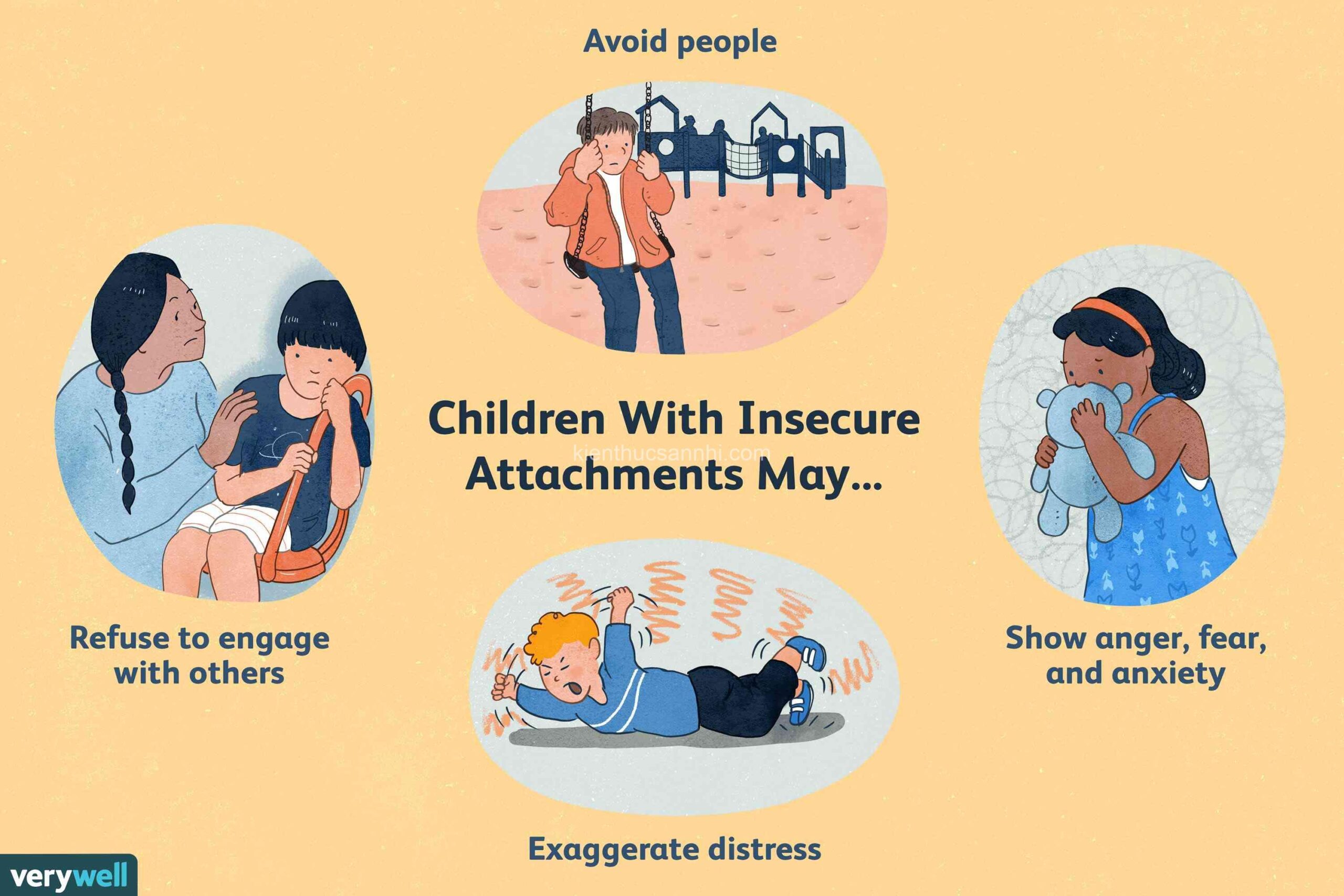
Postpartum Help: Recognizing Signs & Seeking Support. In today’s article, kienthucsannhi.com will explore with you in the most detailed and complete way. See now!
Recognizing Common Postpartum Mental Health Issues
Postpartum is a period of adjustment following childbirth, and it’s a time when many new mothers experience a range of emotions. While most women experience temporary mood swings and fatigue, a significant percentage struggle with more serious mental health challenges. It’s important to remember that seeking help is not a sign of weakness; it’s a sign of strength and a commitment to your well-being.

Postpartum Depression:
Postpartum depression is a common but treatable condition that can significantly impact a new mother’s life. Symptoms can include persistent sadness, anxiety, hopelessness, and a loss of interest in activities you used to enjoy. You may experience changes in your sleep patterns, appetite, or have difficulty concentrating or making decisions. Feelings of guilt, worthlessness, or inadequacy are also common. In some cases, thoughts of harming oneself or the baby may arise. If you experience these thoughts, it’s crucial to seek immediate professional help.
Postpartum Anxiety:
Postpartum anxiety is another common mental health condition that can manifest in various ways. Excessive worry, difficulty relaxing, and panic attacks are common symptoms. You may experience physical symptoms like a rapid heartbeat, sweating, or dizziness. Fear of being alone or leaving the house may also develop, and obsessive thoughts about the baby’s safety are not uncommon.
Beyond Emotional Distress: Recognizing Other Postpartum Signs
While emotional distress is a major indicator of postpartum challenges, it’s important to be aware of other signs that may indicate you need professional help.
Physical Symptoms:
Fatigue and exhaustion are common in the postpartum period, but if you find yourself constantly exhausted despite getting enough sleep, it could be a sign of a more serious issue. Persistent headaches, muscle aches, or unexplained pelvic pain can also be indicators of postpartum complications. Breastfeeding difficulties and latching issues are also common, and these can be frustrating and stressful.
Relationship and Behavioral Changes:
Postpartum challenges can strain relationships with partners, family members, and even the baby. You may feel distant or find it difficult to connect with your baby. Managing everyday tasks like cooking, cleaning, and taking care of yourself might become a struggle. Neglecting your personal hygiene or appearance, avoiding social situations, and engaging in risky or impulsive behaviors are also possible signs of postpartum issues.
Understanding the Importance of Seeking Help
The good news is that postpartum challenges are treatable, and early intervention is key for better outcomes. Untreated postpartum issues can have long-term consequences for both the mother and the baby. Seeking professional help allows you to receive the support you need to recover fully and enjoy your new role as a parent.
Where to Find Postpartum Support
There are many resources available to support mothers through postpartum challenges. Here are a few places to start your journey to recovery:
Medical Professionals:
Your primary care provider or OB/GYN is a great starting point for addressing postpartum concerns. They can assess your symptoms, provide guidance, and refer you to specialists if needed. It’s important to find a doctor or therapist who specializes in perinatal mental health, as they have specialized knowledge and experience in addressing postpartum challenges.
Therapists:
Therapists trained in perinatal mental health can offer valuable support and guidance. They can help you understand your symptoms, develop coping mechanisms, and create a treatment plan tailored to your needs. Many online tools can help you find therapists in your area who specialize in postpartum issues.
Support Groups:
Connecting with other mothers going through similar challenges can be incredibly helpful. Postpartum support groups offer a safe and supportive space to share your experiences, connect with others, and gain valuable insights from their journeys. Many online resources and community centers host postpartum support groups.
Online Resources:
The internet provides a wealth of information and support for new mothers. Reputable websites and organizations offer educational resources, support forums, and access to mental health professionals.
Taking the First Step:
Remember, you are not alone. Seeking help is a sign of strength and a commitment to your well-being. Take the first step, reach out to your doctor or therapist, and start your journey to recovery. Connecting with others in support groups and utilizing online resources can also be invaluable.
Conclusion:
Postpartum is a complex period, and it’s important to seek help if you’re struggling. Remember, every journey is unique, and support is available to help you navigate this new chapter in your life. If you’re looking for additional information about postpartum or other topics related to animal care, visit kienthucsannhi.com. We encourage you to leave a comment below, share your thoughts, and explore our website for more valuable resources.
FAQs about What are the signs that I need professional help postpartum?
What are the signs of postpartum depression?
Postpartum depression is characterized by persistent sadness, anxiety, hopelessness, and a loss of interest in activities previously enjoyed. You might experience changes in sleep and appetite, difficulty concentrating or making decisions, and feelings of guilt, worthlessness, or inadequacy. Thoughts of harming yourself or the baby are also possible, and require immediate professional attention.
What are the signs of postpartum anxiety?
Postpartum anxiety can manifest as excessive worry, difficulty relaxing, and panic attacks. Physical symptoms like rapid heartbeat, sweating, or dizziness are also common. You might experience fear of being alone or leaving the house, and obsessive thoughts about the baby’s safety may arise.
Is it normal to feel overwhelmed after having a baby?
Yes, feeling overwhelmed after childbirth is common, and most women experience the “baby blues” with mild mood swings and fatigue. However, if these feelings persist or intensify, it’s important to seek professional help.
What are the long-term effects of untreated postpartum issues?
Untreated postpartum challenges can have long-term consequences for both the mother and the baby. They can negatively impact mental and physical health, relationships, and overall well-being. Early intervention is crucial for preventing these long-term effects.
How can I find a therapist who specializes in perinatal mental health?
Many online tools and resources can help you find therapists in your area who specialize in perinatal mental health. You can also ask your doctor or OB/GYN for referrals.
EAVs (Entity – Attribute – Value):
- Entity: Postpartum Depression, Attribute: Symptom, Value: Sadness
- Entity: Postpartum Depression, Attribute: Symptom, Value: Anxiety
- Entity: Postpartum Depression, Attribute: Symptom, Value: Hopelessness
- Entity: Postpartum Depression, Attribute: Symptom, Value: Loss of Interest
- Entity: Postpartum Depression, Attribute: Symptom, Value: Sleep Changes
- Entity: Postpartum Depression, Attribute: Symptom, Value: Appetite Changes
- Entity: Postpartum Depression, Attribute: Symptom, Value: Difficulty Concentrating
- Entity: Postpartum Depression, Attribute: Symptom, Value: Guilt
- Entity: Postpartum Depression, Attribute: Symptom, Value: Worthlessness
- Entity: Postpartum Depression, Attribute: Symptom, Value: Inadequacy
- Entity: Postpartum Depression, Attribute: Symptom, Value: Thoughts of Harm
- Entity: Postpartum Anxiety, Attribute: Symptom, Value: Excessive Worry
- Entity: Postpartum Anxiety, Attribute: Symptom, Value: Difficulty Relaxing
- Entity: Postpartum Anxiety, Attribute: Symptom, Value: Panic Attacks
- Entity: Postpartum Anxiety, Attribute: Symptom, Value: Rapid Heartbeat
- Entity: Postpartum Anxiety, Attribute: Symptom, Value: Sweating
- Entity: Postpartum Anxiety, Attribute: Symptom, Value: Dizziness
- Entity: Postpartum Anxiety, Attribute: Symptom, Value: Fear of Being Alone
- Entity: Postpartum Anxiety, Attribute: Symptom, Value: Fear of Leaving the House
- Entity: Postpartum Anxiety, Attribute: Symptom, Value: Obsessive Thoughts
ERE (Entity, Relation, Entity):
- Entity: Postpartum, Relation: Causes, Entity: Hormonal Changes
- Entity: Postpartum Depression, Relation: Leads to, Entity: Relationship Strain
- Entity: Fatigue, Relation: Impacts, Entity: Baby Care
- Entity: Doctor, Relation: Provides, Entity: Diagnosis
- Entity: Therapist, Relation: Offers, Entity: Therapy
- Entity: Support Group, Relation: Promotes, Entity: Connection
- Entity: Help, Relation: Improves, Entity: Postpartum Recovery
- Entity: New Mother, Relation: Experiences, Entity: Postpartum
- Entity: Baby Blues, Relation: Represents, Entity: Mild Postpartum Symptoms
- Entity: Postpartum, Relation: Associated with, Entity: Mental Health
- Entity: Postpartum, Relation: Managed by, Entity: Self-Care
- Entity: Postpartum, Relation: Impacts, Entity: Quality of Life
- Entity: Postpartum, Relation: Influenced by, Entity: Cultural Factors
- Entity: Postpartum, Relation: Treated by, Entity: Medical Professionals
- Entity: Postpartum, Relation: Aided by, Entity: Supportive Relationships
- Entity: Postpartum, Relation: Promoted by, Entity: Education
- Entity: Postpartum, Relation: Affected by, Entity: Social Stigma
- Entity: Postpartum, Relation: Measured by, Entity: Screening Tools
- Entity: Postpartum, Relation: Driven by, Entity: Biological and Psychological Factors
- Entity: Postpartum, Relation: Reflected in, Entity: Research Findings
Semantic Triple:
- Subject: Postpartum, Predicate: Caused by, Object: Hormonal Changes
- Subject: Postpartum Depression, Predicate: Leads to, Object: Relationship Strain
- Subject: Fatigue, Predicate: Impacts, Object: Baby Care
- Subject: Doctor, Predicate: Provides, Object: Diagnosis
- Subject: Therapist, Predicate: Offers, Object: Therapy
- Subject: Support Group, Predicate: Promotes, Object: Connection
- Subject: Help, Predicate: Improves, Object: Postpartum Recovery
- Subject: New Mother, Predicate: Experiences, Object: Postpartum
- Subject: Baby Blues, Predicate: Represents, Object: Mild Postpartum Symptoms
- Subject: Postpartum, Predicate: Associated with, Object: Mental Health
- Subject: Postpartum, Predicate: Managed by, Object: Self-Care
- Subject: Postpartum, Predicate: Impacts, Object: Quality of Life
- Subject: Postpartum, Predicate: Influenced by, Object: Cultural Factors
- Subject: Postpartum, Predicate: Treated by, Object: Medical Professionals
- Subject: Postpartum, Predicate: Aided by, Object: Supportive Relationships
- Subject: Postpartum, Predicate: Promoted by, Object: Education
- Subject: Postpartum, Predicate: Affected by, Object: Social Stigma
- Subject: Postpartum, Predicate: Measured by, Object: Screening Tools
- Subject: Postpartum, Predicate: Driven by, Object: Biological and Psychological Factors
- Subject: Postpartum, Predicate: Reflected in, Object: Research Findings
Semantic Keywords:
- Postpartum
- Mental health
- Emotional health
- Physical health
- Signs
- Symptoms
- Help
- Professional
- Support
- Intervention
Author: Michael David Smith





